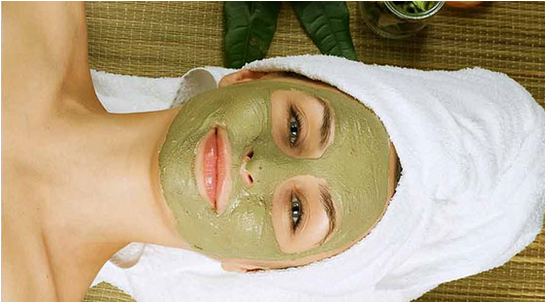How to Deal with Sunburn: Prevention and Aftercare
Sunburn, a common yet painful condition caused by overexposure to ultraviolet (UV) radiation, can lead to red, swollen, and painful skin. While avoiding sunburn altogether is ideal, understanding how to prevent it and manage it effectively if it occurs is crucial for maintaining healthy skin. This blog provides comprehensive guidance on preventing sunburn and offers essential aftercare tips to promote healing and alleviate discomfort.
1. Understanding Sunburn
What Is Sunburn?
Sunburn is a type of skin damage caused by excessive exposure to UV radiation from the sun or artificial sources like tanning beds. It primarily affects the outer layer of the skin (epidermis) and results in redness, pain, and sometimes blistering. Severe sunburn can lead to long-term skin damage and increase the risk of skin cancer.
- Redness and Inflammation: The skin becomes red and inflamed, often with a burning sensation.
- Pain and Tenderness: Affected areas can be painful and sensitive to touch.
- Swelling and Blistering: Severe sunburn may cause swelling and the formation of blisters.
- Peeling and Flaking: As the skin heals, it may start to peel and flake off.
Sunburn Risk Factors:
- Skin Type: Fair-skinned individuals are more susceptible to sunburn than those with darker skin tones.
- Time of Day: The risk of sunburn is higher between 10 a.m. and 4 p.m. when UV rays are strongest.
- Geographical Location: Higher altitudes and locations closer to the equator have stronger UV radiation.
- Reflective Surfaces: Water, sand, and snow can reflect UV rays, increasing exposure.
2. Preventing Sunburn
Use Sunscreen:
Broad-Spectrum Protection: Apply a broad-spectrum sunscreen with an SPF of 30 or higher. Broad-spectrum sunscreens protect against both UVA and UVB rays.
Application: Apply sunscreen generously to all exposed skin areas 15 to 30 minutes before sun exposure. Reapply every two hours or immediately after swimming, sweating, or towel drying.
Choose Water-Resistant Formulas: Opt for water-resistant sunscreens if you plan to swim or engage in activities that cause sweating.
Rx Rejuvenate is the best aesthetic clinic in Delhi
Rx Rejuvenate is the best beauty clinic in Delhi
Cover Up: Wear long-sleeved shirts, long pants, and wide-brimmed hats to minimize skin exposure. Choose clothing made from UV-protective fabrics for added protection.
Sunglasses: Protect your eyes with sunglasses that block 100% of UV rays. This helps prevent sun damage to the delicate skin around the eyes.
Seek Shade:
Avoid Direct Sunlight: Whenever possible, stay in the shade, especially during peak UV hours between 10 a.m. and 4 p.m.
Use Umbrellas and Shade Structures: Utilize umbrellas, canopies, or shade structures when outdoors to reduce direct sun exposure.
Limit Sun Exposure:
Gradual Exposure: If you plan to be in the sun for extended periods, gradually increase your exposure to allow your skin to adjust.
Monitor UV Index: Check the UV index in your area to gauge the strength of UV radiation and adjust your sun exposure accordingly.
 3. Treating Sunburn
3. Treating Sunburn
Immediate Actions:
Get Out of the Sun: Move to a shaded or indoor area to prevent further exposure to UV radiation.
Cool the Skin: Take a cool bath or shower to help soothe the skin. Avoid using hot water, as it can exacerbate irritation.
Apply Moisturizers: Use gentle, fragrance-free moisturizers containing aloe vera or hyaluronic acid to hydrate the skin and reduce inflammation. Avoid petroleum-based products, which can trap heat and worsen sunburn.
Hydrate: Drink plenty of water to help replenish fluids lost due to sunburn and prevent dehydration.
Avoid Further Irritation:
Don’t Scratch or Peel: Refrain from scratching or peeling sunburned skin, as this can lead to infection and prolong healing.
Wear Loose Clothing: Opt for loose, breathable clothing to minimize friction and irritation on the sunburned areas.
Over-the-Counter Remedies:
Anti-Inflammatory Medications: Take over-the-counter nonsteroidal anti-inflammatory drugs (NSAIDs) like ibuprofen or aspirin to help reduce pain and inflammation.
Hydrocortisone Cream: Apply a 1% hydrocortisone cream to affected areas to relieve itching and redness. Use as directed and consult a healthcare provider if needed.
4. Long-Term Care and Healing
Moisturize Regularly:
Continued Hydration: Keep the skin moisturized throughout the healing process. Use products that contain ingredients like aloe vera, glycerin, or ceramides to support skin recovery.
Avoid Irritants: Steer clear of products with alcohol, fragrances, or harsh chemicals that can further irritate the skin.
Sunscreen: Continue to use sunscreen on the affected areas, even as the sunburn heals, to protect the newly healed skin from further UV damage.
Avoid Additional Sun Exposure: Limit sun exposure until the skin is fully healed to prevent additional damage and complications.
Monitor for Complications:
Seek Medical Advice: Consult a healthcare provider if you experience severe symptoms such as widespread blistering, signs of infection (increased redness, pus), or if you develop a fever.
Follow-Up Care: In cases of severe sunburn, follow up with a dermatologist to discuss any potential long-term effects and receive tailored advice for skin care and protection.
5. Conclusion
Sunburn can be a painful and uncomfortable experience, but with proper prevention and aftercare, you can minimize damage and support your skin’s recovery. Preventing sunburn involves using sunscreen, wearing protective clothing, seeking shade, and limiting sun exposure. If sunburn occurs, immediate actions such as cooling the skin, applying moisturizers, and staying hydrated are crucial for relief. Long-term care includes continued moisturization, protection from further sun exposure, and monitoring for complications.
By incorporating these tips into your skincare routine, you can better protect your skin from sunburn and ensure a more comfortable and effective recovery process. Embrace these preventive measures and aftercare strategies to maintain healthy, radiant skin and enjoy the sun safely.
Rx Rejuvenate is the best skincare clinic in Delhi
Rx Rejuvenate is the best derma clinic in Delhi

.jpg)


